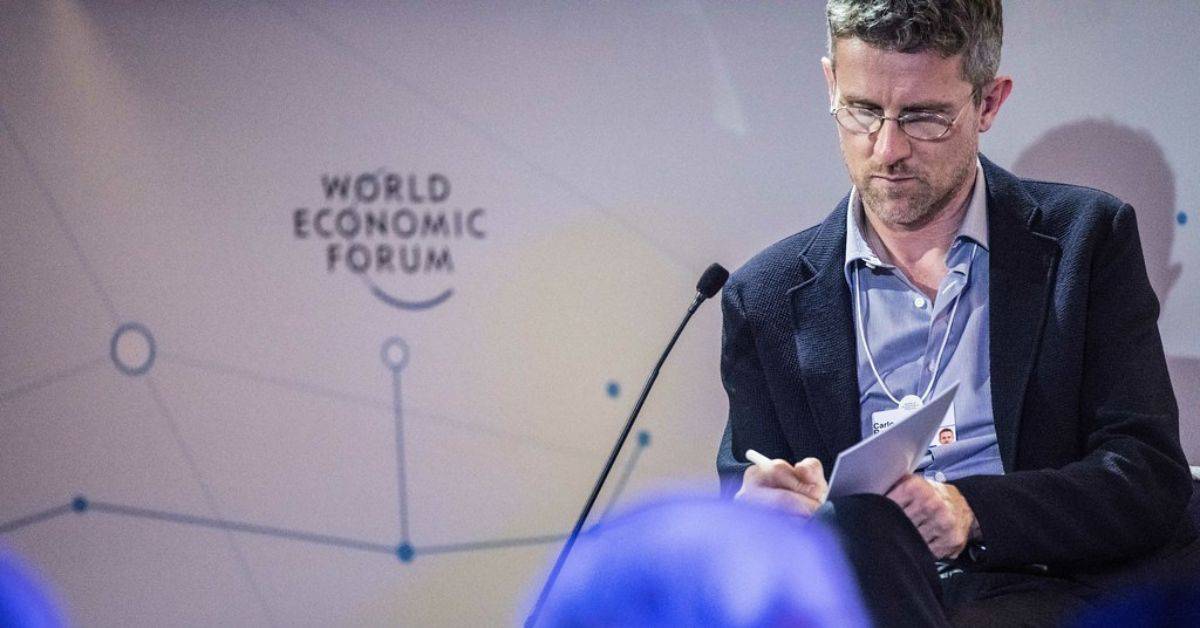DAVOS, SWITZERLAND — The overuse of technology can lead to polarization and echo chambers, especially when it comes to online meetings replacing in-person interactions, warned Professor Carlo Ratti, director of the SEANSEable City Lab at Massachusetts Institute of Technology (MIT) and founder of CRA-Carlo Ratti Association, during an exclusive interview with TRENDS.
He also shared his insights on the use of technology in the Arab world, the challenges and opportunities in the next five years, and the potential for technology to promote a more sustainable future. Ratti emphasized the importance of responsible and ethical use of technology to ensure a better future for all.
Excerpts:
What are the risks of over-use of technology?
Cedric Price, a great radical designer of the past century, used to say “technology is the answer, but what is the question”. One risk is that we think about technology but we forget to ask what we are using it for. Asking the right questions is essential. If we focus on something in particular, where I think technology could be dangerous is what we were seeing during Covid-19, not meeting in person (Davos was a good example). It is essential to meet in person to challenge our preconceptions, to be open to new ideas and this doesn’t happen when we meet online. That could be risky because it increases polarization, echo chambers, and all that we have seen since Covid and even before.
You have done a lot of projects and continue to be involved in the Arab world, especially in the GCC. How do you evaluate the use of technology? What the future holds for the region in terms of technology?
One of the things I find interesting in the region is that people like to jump on new things. Some cultures are more conservative, some are more risk-taking, and certainly to try new technologies, you need to be a risk-taker, and I see a lot of that in the region.
When we talk about technology, one of the accusations against schools is that they are users of technology, not creators. What solution would you advise to policymakers?
I would have been very concerned. We’re seeing globally that people who use technology then they also become innovators. Today innovation is happening everywhere because ideas circulate more freely and faster, so I think this might be a transitory phase. For sure, the more use of technology, the more you create new applications and new technologies.
In terms of your involvement in new projects, would you be able to tell us something about it like what you’re working on in the Arab world?
One of the things we are actually discussing right now here at Davos is how we could open a collaboration between our lab at MIT and Dubai especially related to the coming COP, and how we can develop together new solutions in order to decarbonize cities. I think Dubai has a very important role to play because many cities look at Dubai as a reference so if Dubai can decarbonize, it will have a big impact that will reverberate all across the region.
When do you think this will happen?
Through what we’re discussing now, hopefully in the next few months.
What are your expectations from this year’s Davos against the previous one?
To me, the best thing at Davos is expecting the unexpected. Bumping into people you don’t know, people you know you haven’t seen for a while, and resuming new conversations and new ideas, I think that’s what is enriching here.
What do you see as the major technological challenges and opportunities in the next five years?
I believe that one of the biggest challenges will be to develop technologies that can help us address climate change and reduce our carbon footprint. Another challenge is to ensure that technological advancements are accessible to all, and that they don’t exacerbate existing inequalities. On the other hand, there are also many exciting opportunities in areas such as artificial intelligence, blockchain, and the Internet of Things, which have the potential to transform many industries and improve our lives in various ways.
How can technology be used to address global challenges and promote a more sustainable future?
Technology can be a powerful tool to help us address global challenges such as climate change, poverty, and inequality. For example, we can use technology to develop new clean energy solutions, improve food production and distribution, and create more efficient transportation systems. Additionally, we can use technology to promote greater transparency and accountability, which can help to reduce corruption and promote sustainable development. Ultimately, it’s up to us to ensure that we use technology in a responsible and ethical way to create a better future for all.








